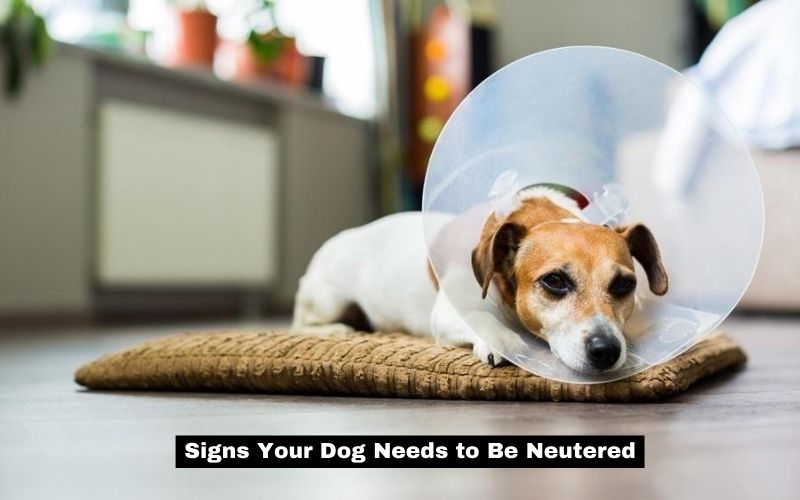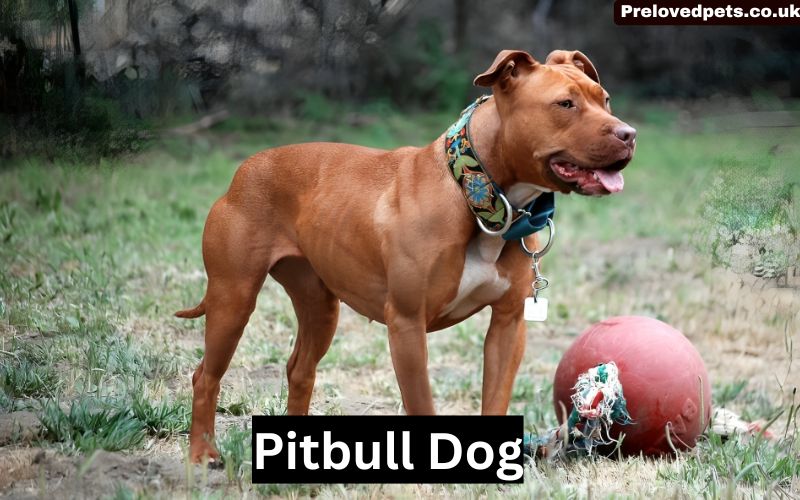Neutering, also known as castration or spaying (in females), is a common veterinary procedure that involves the removal of an animal’s reproductive organs. While many dog owners choose to neuter their pets for various reasons, understanding when it might be necessary can be crucial for the well-being of the dog and the harmony of the household. This article delves into the signs that indicate your dog might need to be neutered, the benefits of the procedure, and what to expect during the process.
Understanding Neutering
Neutering refers to the surgical removal of a dog’s reproductive organs. In males, it involves the removal of the testicles, while in females, it entails the removal of the ovaries and usually the uterus. This procedure not only prevents unwanted litters but also offers several behavioral and health benefits.
Signs Your Dog Needs to Be Neutered
1. Aggressive Behavior
One of the most notable signs that your dog may need to be neutered is increased aggression. Unneutered male dogs, in particular, are more prone to displaying aggressive behaviors such as growling, biting, or snapping. This aggression can be directed towards other dogs, animals, or even humans. Neutering can help reduce testosterone levels, which in turn, can mitigate aggressive tendencies.
2. Marking Territory
Dogs, especially males, mark their territory by urinating on various objects. This behavior is driven by the urge to assert dominance and attract mates. If your dog frequently marks furniture, walls, or other items inside your home, neutering can help curb this instinctive behavior. It’s important to note that early neutering (before the marking behavior becomes a habit) can be more effective in preventing this issue.
3. Roaming and Escaping
An unneutered dog is often driven by the urge to find a mate, which can lead to roaming and attempts to escape from home. This behavior not only poses risks to your dog’s safety but also increases the likelihood of them getting lost or injured. Neutering reduces the hormonal drive to roam, helping your dog stay closer to home and reducing the chances of escape.
4. Mounting and Humping
Mounting and humping are common behaviors in unneutered dogs and can be directed towards other dogs, objects, or even people. This can be embarrassing and problematic for pet owners. Neutering can significantly reduce these behaviors by decreasing the hormonal influences that cause them.
5. Increased Risk of Certain Health Issues
Unneutered dogs are at a higher risk of developing certain health problems. For males, this includes testicular cancer and prostate issues. Females are at risk of mammary tumors and uterine infections, such as pyometra. Neutering eliminates the risk of testicular cancer and significantly reduces the risk of prostate problems and mammary tumors.
6. Overpopulation and Unwanted Litters
One of the primary reasons for neutering pets is to control the pet population. Shelters are often overwhelmed with unwanted animals, many of which are the result of unplanned litters. By neutering your dog, you contribute to the reduction of stray and homeless animals, ensuring that fewer dogs end up in shelters or face euthanasia.
7. Behavioral Issues
Apart from aggression and marking, unneutered dogs may exhibit other behavioral issues such as excessive barking, dominance, and hyperactivity. Neutering can help in calming these behaviors, making your dog more manageable and improving their quality of life.
Benefits of Neutering
1. Health Benefits
Neutering provides several health benefits for both male and female dogs. As mentioned earlier, it reduces the risk of various cancers and infections. Additionally, it can lead to a longer, healthier life for your pet.
2. Behavioral Improvements
Many behavioral problems are hormone-driven. By removing the source of these hormones, neutering can lead to significant improvements in behavior. This includes reduced aggression, less marking, decreased roaming, and fewer mounting behaviors.
3. Cost Savings
While the upfront cost of neutering may seem high, it can save you money in the long run by preventing costly medical treatments for conditions like cancer or infections. It also eliminates the potential expenses associated with caring for unplanned litters.
4. Contribution to Animal Welfare
Neutering your pet contributes to the overall welfare of the animal community. It helps reduce the number of stray animals, eases the burden on shelters, and ensures that more animals find loving homes.
When to Neuter Your Dog
Age Considerations
The optimal age for neutering can vary depending on the dog’s breed, size, and health. Generally, dogs are neutered between six months to one year of age. However, some veterinarians may recommend neutering as early as eight weeks old, especially in shelters where early neutering can help control the population. Larger breeds may benefit from waiting until they are slightly older, as they tend to mature more slowly.
Health Considerations
Before scheduling a neutering procedure, it’s essential to have your dog thoroughly examined by a veterinarian. This ensures that they are in good health and can safely undergo surgery. Pre-surgical blood work may be recommended to check for any underlying health issues that could complicate the procedure.
The Neutering Procedure
Pre-Surgery Preparations
Before the surgery, your veterinarian will provide specific instructions, such as withholding food and water for a certain period. It’s crucial to follow these guidelines to ensure your dog’s safety during anesthesia.
The Surgery
Neutering is typically performed under general anesthesia, ensuring that your dog is pain-free during the procedure. For males, the surgery involves making a small incision in the scrotum to remove the testicles. For females, a larger incision is made in the abdomen to remove the ovaries and usually the uterus. The incisions are then closed with sutures.
Post-Surgery Care
After the surgery, your dog will need time to recover. This includes keeping them calm and preventing them from licking or biting at the incision site. Your veterinarian will provide specific aftercare instructions, including pain management and activity restrictions. It’s important to monitor your dog for any signs of infection or complications and to follow up with your veterinarian as recommended.
Addressing Common Concerns About Neutering
Will Neutering Change My Dog’s Personality?
A common concern among pet owners is whether neutering will drastically change their dog’s personality. While neutering can reduce certain hormone-driven behaviors, it doesn’t change your dog’s fundamental personality. Your dog will still be the same loving and playful companion.
Is Neutering Painful for My Dog?
Neutering is a surgical procedure, so there is some discomfort involved. However, modern veterinary practices ensure that your dog is under anesthesia during the surgery and provide pain management postoperative. Most dogs recover quickly and return to their normal activities within a few days.
Can Neutering Lead to Weight Gain?
Some dog owners worry that neutering will cause their dog to gain weight. While neutering can reduce your dog’s metabolic rate, weight gain can be managed with proper diet and exercise. It’s important to adjust your dog’s caloric intake and ensure they get regular physical activity to maintain a healthy weight.
See Also: Healthy Food Toppers for Dogs
Alternatives to Neutering
For some dog owners, neutering may not be an option due to health concerns, personal beliefs, or other reasons. In such cases, there are alternatives to consider:
Hormonal Treatments
Hormonal treatments can help manage certain behaviors and health issues without the need for surgery. These treatments should be discussed with your veterinarian to understand the potential benefits and risks.
Behavior Training
Professional behavior training can address many of the behavioral issues associated with intact dogs. Training can help manage aggression, marking, and other problematic behaviors through positive reinforcement and behavior modification techniques.
Contraceptive Measures
In some cases, contraceptive measures such as birth control injections or implants can be used to prevent reproduction. These methods are typically temporary and require regular veterinary visits.
Making the Decision
Deciding whether to neuter your dog is a significant decision that should be made after considering various factors, including your dog’s health, behavior, and lifestyle. Consulting with your veterinarian is crucial in making an informed decision that’s in the best interest of your pet.
Consider Your Dog’s Health and Behavior
Evaluate your dog’s overall health and any behavioral issues that might be addressed through neutering. If your dog exhibits signs of aggression, marking, roaming, or other problematic behaviors, neutering could be beneficial.
Consider Your Lifestyle and Environment
Consider how your lifestyle and living environment might be impacted by your dog’s behaviors. If you live in an area with many other dogs or have a busy household, neutering might help create a more harmonious environment.
Consult with Your Veterinarian
Your veterinarian is the best resource for understanding the benefits and risks of neutering your dog. They can provide personalized advice based on your dog’s breed, age, health, and behavior.
FAQs
What is neutering?
Neutering, also known as castration or spaying, is a surgical procedure to remove a dog’s reproductive organs. For males, this involves removing the testicles, while for females, it involves removing the ovaries and usually the uterus.
Why should I neuter my dog?
Neutering offers several benefits, including reducing the risk of certain cancers and infections, mitigating hormone-driven behaviors such as aggression and marking, preventing roaming, and contributing to controlling the pet population by preventing unwanted litters.
At what age should I neuter my dog?
The optimal age for neutering can vary, but it is generally recommended between six months to one year of age. Some veterinarians may suggest neutering as early as eight weeks, especially in shelters, while larger breeds might benefit from waiting until they are slightly older.
How does neutering affect my dog’s behavior?
Neutering can reduce hormone-driven behaviors such as aggression, marking, roaming, and mounting. It can also help calm hyperactive and dominant behaviors. However, it does not change your dog’s fundamental personality.
Will my dog gain weight after being neutered?
Neutering can reduce your dog’s metabolic rate, which may lead to weight gain if their diet and exercise are not adjusted accordingly. Maintaining a proper diet and regular exercise routine can help prevent weight gain.
Conclusion
Neutering is a common and often beneficial procedure for dogs, offering numerous health and behavioral advantages. By recognizing the signs that your dog may need to be neutered, you can make an informed decision that promotes their well-being and contributes to the overall welfare of the animal community. Always consult with your veterinarian to ensure that you’re making the best choice for your furry friend.




